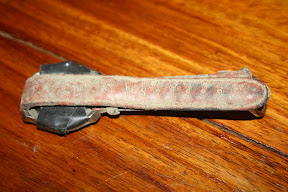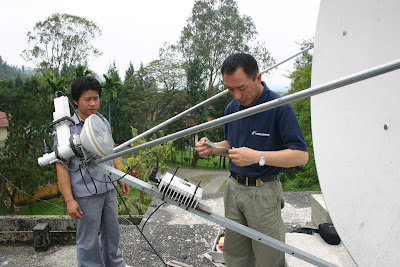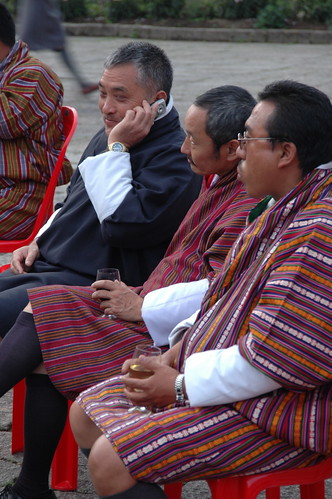Network Connectivity - I agree with Om Malik
Om Malik wrote a post about the One Laptop Per Child project and mentioned that he is fairly critical about the project. Having stayed in a developing nation for almost a year, I tend to agree with him. I remember my excitement when I first learned about the OLPC. I was then an intern in a major US company and that company itself was involved in the OLPC project. From an engineering perspective, the OLPC project is the way to go. Instead of donating money, provide a device that is affordable. Bootstrap developing nations to help themselves. It's an excellent idea.
Staying in a developing nation, I realized that it is not only a money issue but as well a development issue. How do you make sure that people interact with the device responsible? How do you make sure that it doesn't end up with the wrong person? How do you provide support? How do you get replacement?
From my current perspective, the OLPC project is only the first step. An important step but many important steps have to follow. One of those steps is mentioned in Om's post: internet connectivity.
Before I came to Bhutan, I took good internet connectivity for granted - at least during the last seven years. Coming to Bhutan, I soon realized that not everybody has good internet connectivity. At the institute that I'm staying, we have a 1 Mbps down / 256 kbps up connection. We pay more than US $1000 per month to our satellite provider. Compare this to Switzerland where you can get three times the speed for a tenth of the money. 100 computers are using this connection and it easily follows that we wait now and then. Making things worse, the 1 Mbps / 256 kbps are not guaranteed but we rather have to share this bandwidth with 20 other customers in the worst case. Effectively accessing the internet is almost impossible. Loading GMail - forget it!!
The situation has improved a little bit after I tweaked our proxy server. Configuring squid, caching windows updates (1.5 GB in a week), blocking all porn / dating / .. sites. But still, it is a pain to access the internet.
The developing world needs innovative solutions for this problem. Putting cables into the ground may prove to be too expensive; at least for mountainous countries such as Bhutan. Maybe Stratellite?













